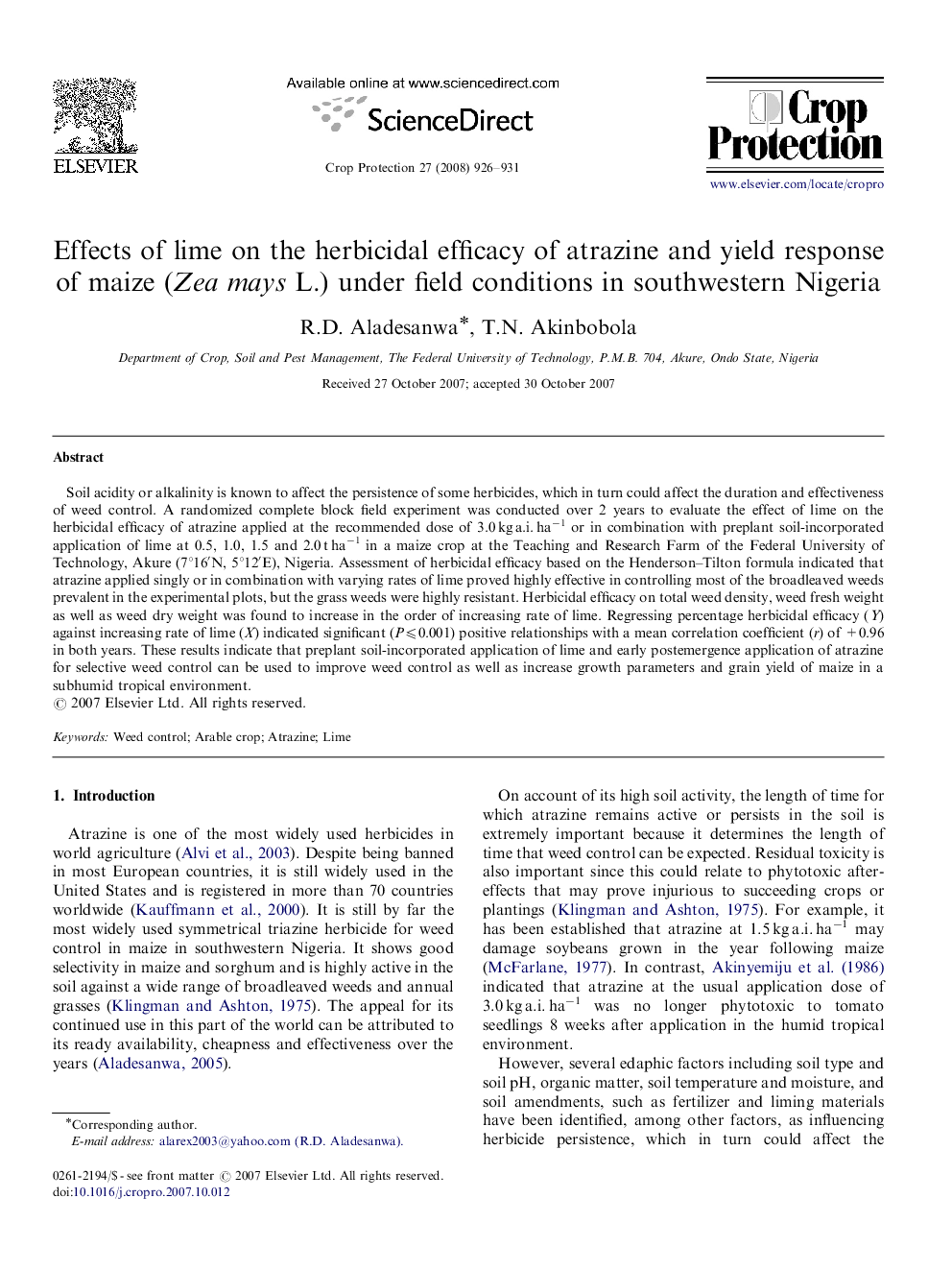| Article ID | Journal | Published Year | Pages | File Type |
|---|---|---|---|---|
| 4507636 | Crop Protection | 2008 | 6 Pages |
Soil acidity or alkalinity is known to affect the persistence of some herbicides, which in turn could affect the duration and effectiveness of weed control. A randomized complete block field experiment was conducted over 2 years to evaluate the effect of lime on the herbicidal efficacy of atrazine applied at the recommended dose of 3.0 kg a.i. ha−1 or in combination with preplant soil-incorporated application of lime at 0.5, 1.0, 1.5 and 2.0 t ha−1 in a maize crop at the Teaching and Research Farm of the Federal University of Technology, Akure (7°16′N, 5°12′E), Nigeria. Assessment of herbicidal efficacy based on the Henderson–Tilton formula indicated that atrazine applied singly or in combination with varying rates of lime proved highly effective in controlling most of the broadleaved weeds prevalent in the experimental plots, but the grass weeds were highly resistant. Herbicidal efficacy on total weed density, weed fresh weight as well as weed dry weight was found to increase in the order of increasing rate of lime. Regressing percentage herbicidal efficacy (Y) against increasing rate of lime (X) indicated significant (P⩽0.001) positive relationships with a mean correlation coefficient (r) of +0.96 in both years. These results indicate that preplant soil-incorporated application of lime and early postemergence application of atrazine for selective weed control can be used to improve weed control as well as increase growth parameters and grain yield of maize in a subhumid tropical environment.
